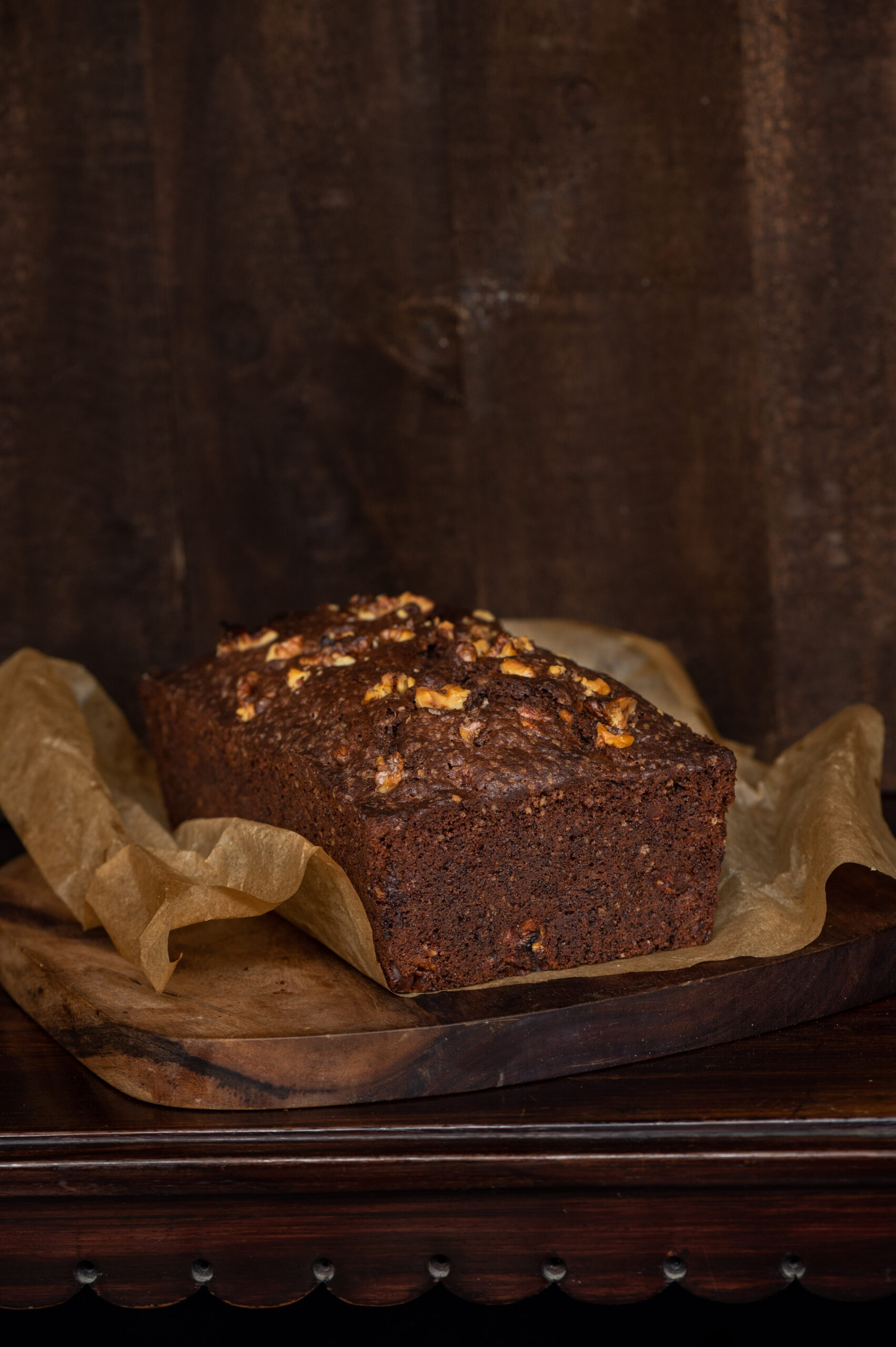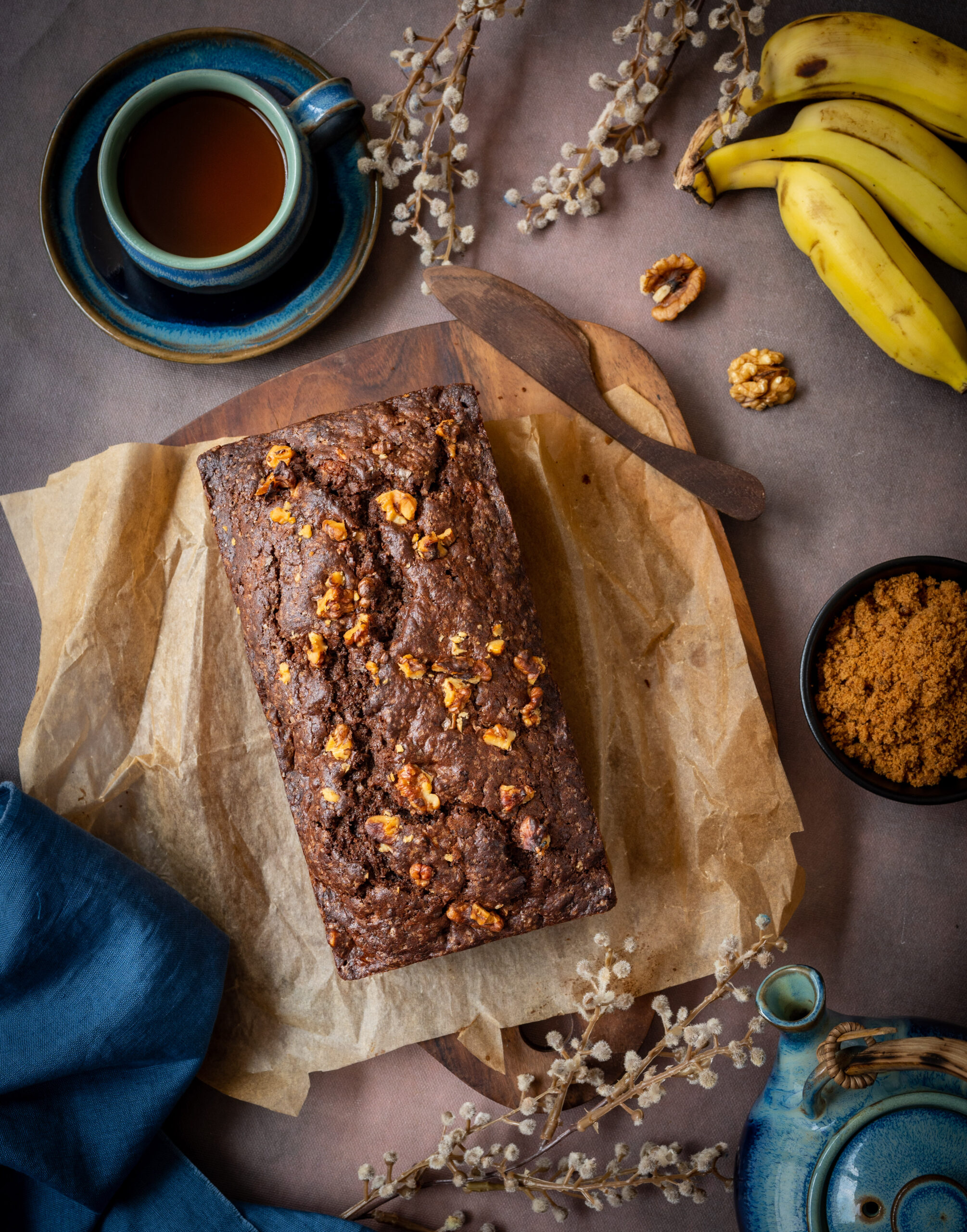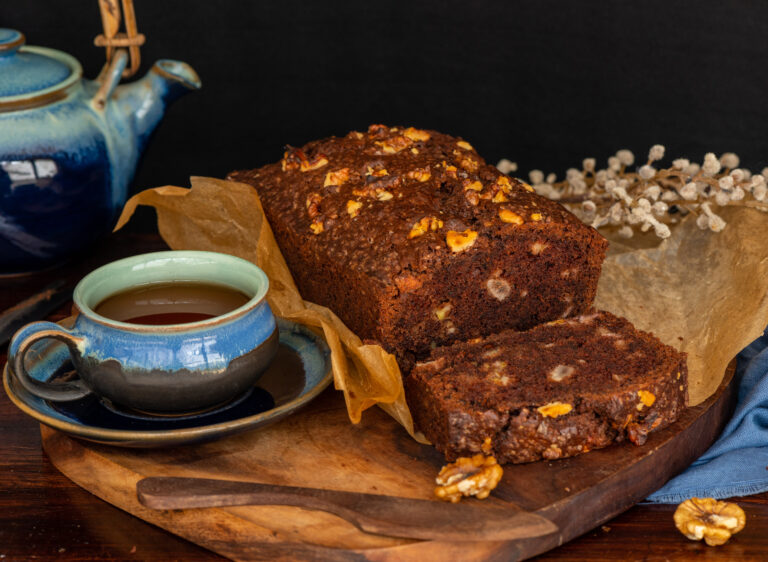I shared a banana bread recipe with you a few years ago, which I hope you enjoyed. I encourage you to try it out too, if you have not already. I more recently began experimenting with a chocolate-banana combination, and this new version of deliciousness is what I’d like to share with you today. This banana chocolate loaf is not just an upgrade, but an entirely new recipe. As I’ve shared before, especially in this post, baking is a science, so please do go through the ingredients and method step by step when you prepare it, even if you are familiar with my earlier banana bread.
My first trial for this recipe didn’t include chocolate at all. The thought process behind it was that as I am not a fan of raw bananas, but appreciate the fruit’s amazing nutritional qualities, baking it into another cake was a fun way to incorporate it into my diet. After all, Indian meals often end with a banana, eaten for its digestive benefits, so why not end with a banana cake?
Keeping the health quotient in mind, as I have introduced chocolate into this cake, I have been mindful about its sugar quotient. I have chosen to use dark chocolate pellets, which are less sweet. I have also used brown sugar in a reduced quantity since the flavour of the banana already imparts the dish with natural sweetness. You may wish to substitute the same with jaggery powder, if you prefer. You will notice that this one also has a special ingredient, something that gives it a different zing from the earlier banana cake recipe.
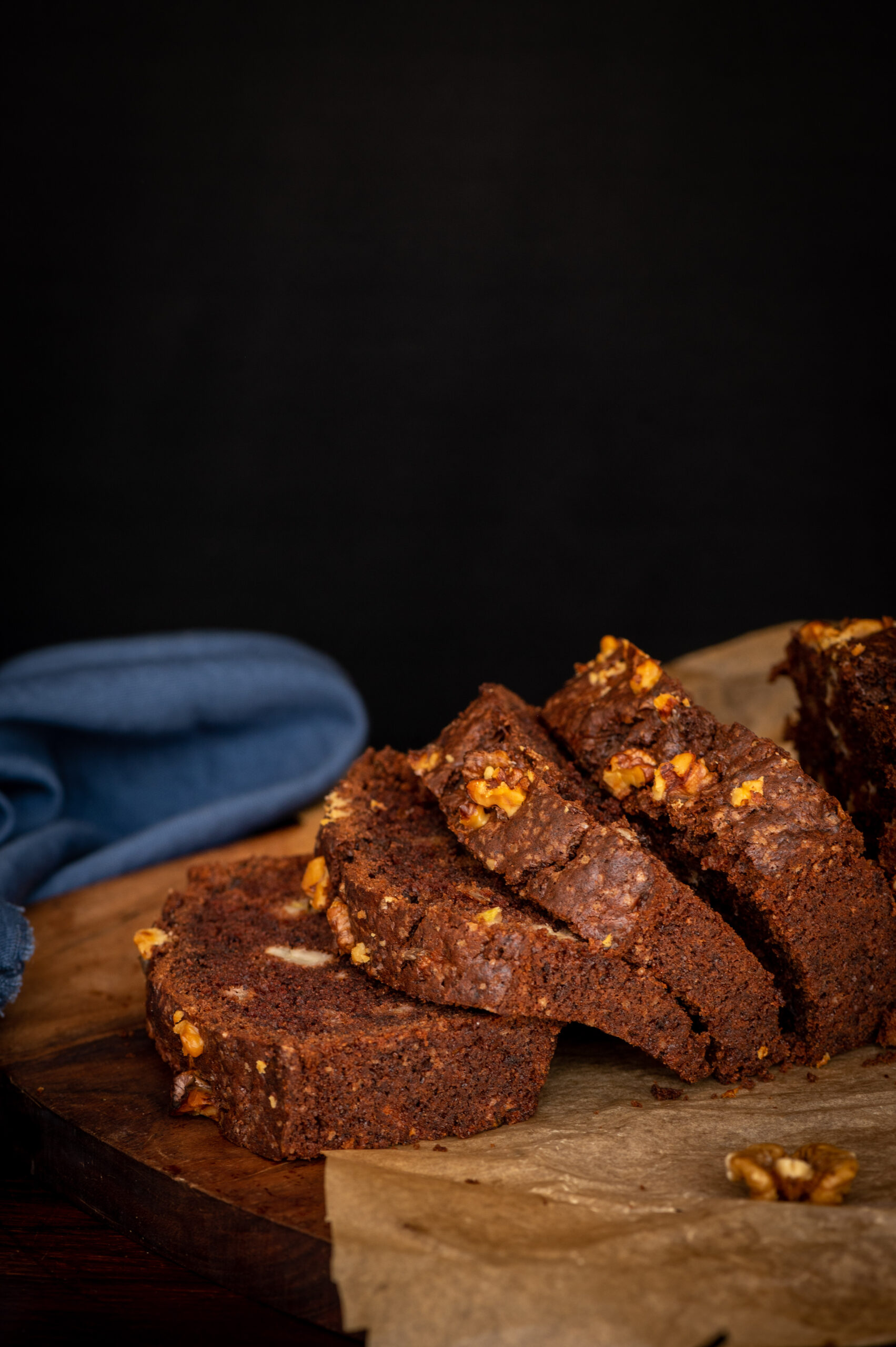
I absolutely must have something to munch on along with my tea or coffee in the late afternoons, and this banana chocolate cake or my date cake (a favourite among re:store clients too) are what I find myself reaching out for often lately.
In fact, one of the best things about this banana chocolate loaf is that it packs and travels very well, which means I’ve gotten my fix of it even when I’ve not been at home. Recently, I made a trip with a dear childhood friend, and this treat was our companion for the first few days. Even though we were seeing each other after a long time, we picked up where we left off with ease. That’s how it usually is with childhood friends, isn’t it? You just catch up, and the happy memories from decades ago flood back afresh, and renew the bond quickly. The same thing happens with food, too. That’s why it is said that food is emotional: it helps one express and relive one’s memories, attachments and experiences.
I baked and carried this beautiful banana chocolate loaf with me on that holiday with my childhood friend. We travelled everywhere by train and by road, and enjoyed bites of this cake in the English countryside whenever we stopped to take in the scenery. Our afternoon tea in charming little villages had the requisite freshly-made traditional scones and clotted cream, of course, and I hope to master the recipe for that sometime. But my banana chocolate loaf was also present, loving parcelled and equally lovingly shared, and to me it was just as delicious as our authentic holiday treats.
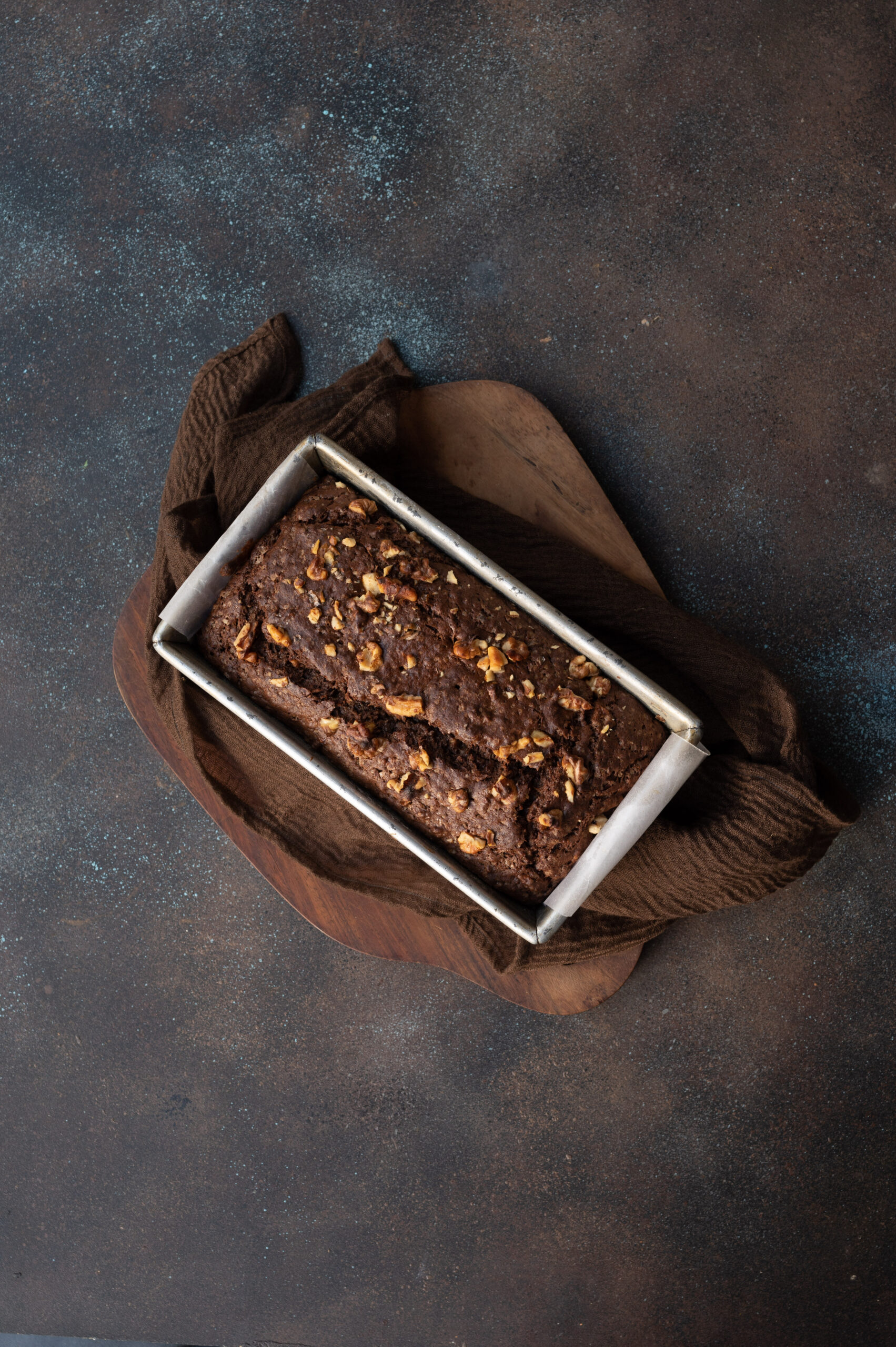
Banana Chocolate Loaf
(Yield: 9 inch loaf)
175 grams maida
20 grams cocoa powder (unsweetened)
¼ teaspoon salt
1 teaspoon baking soda
½ teaspoon cinnamon
1 cup brown sugar
2 eggs
120 grams butter
1¼ cups very ripe bananas (mashed)
1 teaspoon vanilla extract
1⁄3 cup yoghurt and cream (mixed)
½ cup chocolate chips
¼ cup broken walnuts (for garnishing)
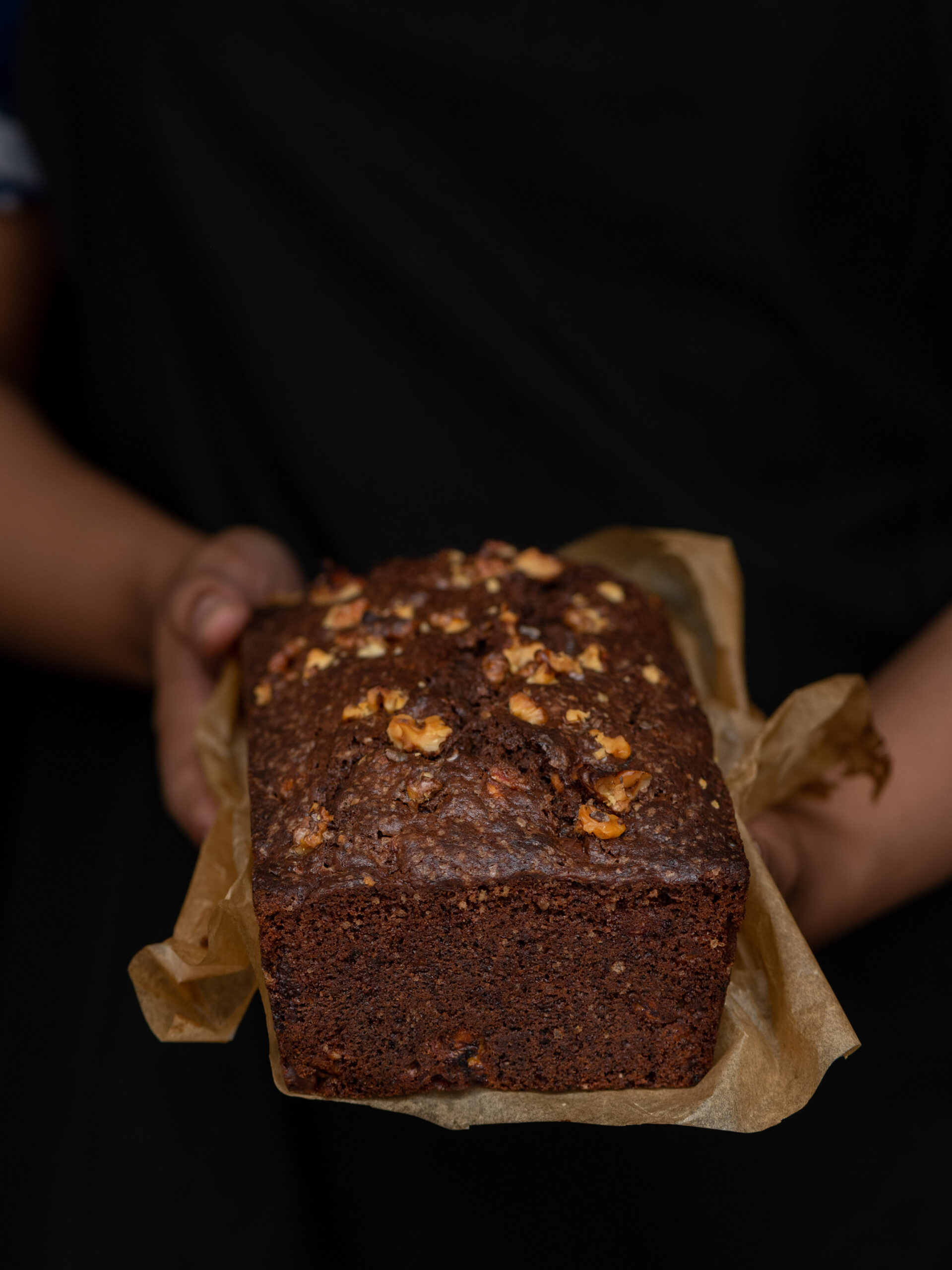
Preheat the oven at 160°-170° and grease and dust a 9-inch loaf pan.
In a bowl, sift the dry ingredients well. Set aside.
In another bowl, beat the butter and sugar well, scraping down sides and making sure they’re all mixed well. Now, add the eggs one by one and continue beating. Next, add the mashed bananas and vanilla extract and beat slightly.
Now, add the cream and yoghurt mixture and beat again. Next, add the dry ingredients as well as some of the walnuts and all the chocolate chips. Fold over lightly.
Pour the batter into the loaf tin and sprinkle the remaining walnuts on top.
Bake for about 30-40 minutes or until a skewer inserted comes out clean.
Rest the loaf in the tin for 10-15 minutes. Then, upturn and remove from the tin. Allow to cool.
Your banana chocolate loaf is now ready to be sliced and served. I do hope you’ll enjoy this recipe, and that you’ll make some special memories with it just like my friend and I did on our travels recently. Whenever I share cake recipes, it’s so that more people can enjoy the pleasure of baking, and I encourage you to try them out for yourself. But if you would rather have me whisk a cake up for you, I’m always happy to do so too. Just drop me a line!
